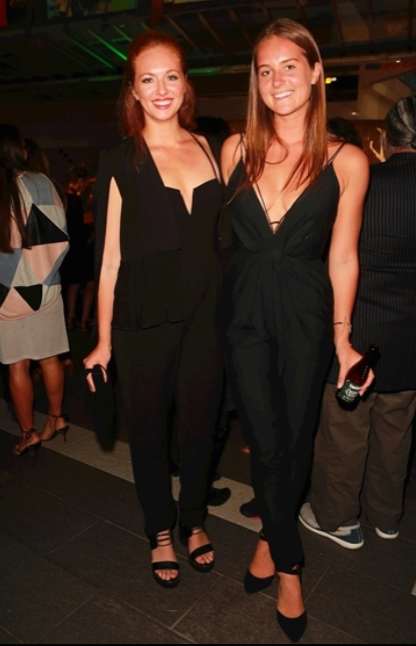
Truth be told, Americans have always been smitten with New Zealand. It’s so far away that it long remained a mystery. The terrain there is highly diverse in an area roughly the size of Colorado. Vast temperature ranges and breathtaking views testify to its diversity and possibilities; this description is also applicable to NZ native and actress Victoria MacCulloch who personifies these traits. She uses them to her advantage and the betterment of the various film and television productions she’s been a part of. Since her first major national exposure on TVNZ’s (One of New Zealand’s leading television networks) award-nominated drama series Dirty Laundry, MacCulloch has plotted a professional course populated by roles in films that challenge the public’s perception of her rather than choosing those which might be the most expected. In doing so, Victoria has communicated that she is the type of actor who is fueled by the exploration of what she might be able to transform herself into. Hollywood’s recognition of her skill and charisma has increasingly pulled her to North America and the opportunities which exist for such a talent here.

Confessions of a Highly Emotional Bag Man takes literal license with the concept of humans carrying around the oppressive weight of unfortunate relationships. Peter (Ryan Carter) has a constant companion in the talking sack of insecurities he totes around his shoulder. This agitating accessory uses its voice to confine Peter’s aspirations, including that of connecting with the lovely office worker/writer Vickey (Victoria MacCulloch). The film received resounding praise following its screening at the Berlin International Film Festival for its clever take on self-flagellation of the inner psyche. Adoring Vickey from afar for so much of the film, Peter’s eventual overture to connect with her makes it all the more satisfying. The chemistry between the two is instantly palpable. MacCulloch possesses the luminous quality that makes her so mesmerizing early in the film before the two connect but it’s when these characters click so quickly in their first conversation that we understand Vickey has also been longing for this moment. While romance was certainly a strong ingredient for manifesting these characters, the slightly unusual aspect of this film took a little getting used to for MacCulloch who states, “This was my first film experience acting with puppets [the baggage]. Because they were animated and voiced in post-production, you were generating a lot more of what was happening in certain scenes from your imagination. It was fun and creative though. We were given a lot of freedom which definitely added to the fun.”
Her role in Hayden Rountree’s Down Harrison Drive also made Victoria a central character in a surreal film but one with a much darker conclusion. Rountree and MacCulloch worked together to bring a strong comedic quality to her character, one rooted in sitcom tropes hearkening back to the late 20th century television. Laugh tracks and the camera framing instantly inform that we are in a world that mimics the saccharin productions that were so easily digested by audiences from the 50s through the 90s, while an unexpressed wink on the part of the filmmaker and cast careen us towards some unrealized element. Victoria is particularly impressive in this regard, never revealing enough to elicit an “a-ha” moment until the shocking final scene of the film. Similar in tone to Black Mirror, Down Harrison Drive reveals a technological twist in its final moments that demands another viewing to fully appreciate the knowledge withheld until this moment. MacCulloch, who so often is focused on playing “real” people, notes that playing a “sitcom type” was a new experience for her. She informs, “The most challenging part of filming was translating aspects of the character in to the SitCom world. Daisy needed to reflect who she was but also fit within the fantasy SitCom world that Harper had created. It was a lot of fun finding the moments where her true feelings slipped through in to the fantasy. There’s a moment where Harper kisses her goodbye and she ever so slightly flinches. Those small moments become so pivotal over the course of the film. I loved playing with the SitCom genre and the moments where reality seeped through into that world. It was rewarding to get to play with the balance of both realities in such a nuanced way. The smallest moments came to carry such weight.”
Why does this New Zealand born actress who has appeared in major network dramas feel compelled to seek out films which blur reality and some other state of awareness? It’s not really a genre based decision for her as Victoria adds, “I love roles that move me. It starts with something intriguing about them that makes me want to learn more. I love roles that allow me to explore new experiences or aspects of myself. I’m always drawn to characters with complexity, that hold a mirror up to people.”


Be the first to comment on "Eluding Definition with New Zealand’s Victoria MacCulloch"